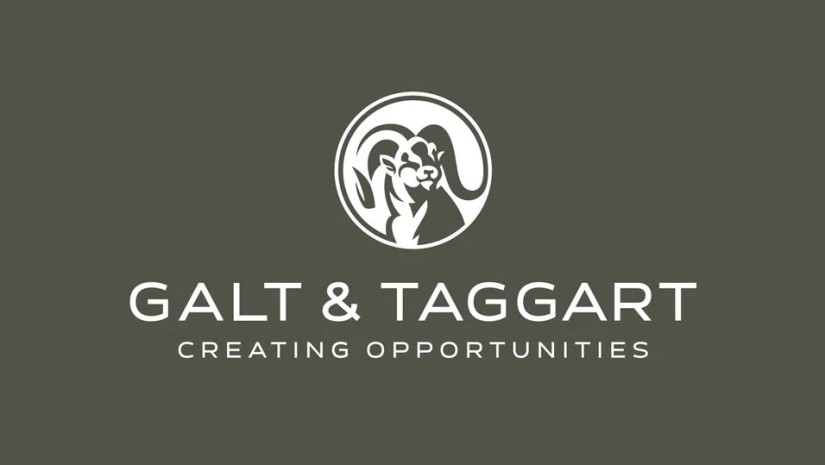Galt&Taggart published Global Markets Weekly Update.
USA
Taiwan Semiconductor Manufacturing (TSM):
TSM stock started the week in decline, only to rebound mid-week in response to the announcement of impressive 50.0% y/y growth in total sales. As the management noted, the seasonal surge in sales is largely attributed to increased order volumes from Apple and Qualcomm.
TSM also announced they will be opening a second chip manufacturing plant in Arizona, therefore, more than tripling the original investemnt of $12bn to $40bn. Importantly, this action can be interpreted as part of a bigger picture of industrial deglobalization rather than a standalone company decision.
Activision Blizzard (ATVI):
The Federal Trade Commission has filed an antitrust lawsuit against Microsoft (MSFT), which was pursuing an acquisition deal with a major multimedia company, Activision Blizzard (ATVI). FTC evaluated the potential merger as anticompetitive, warning the move would monopolize the gaming market which is already highly concentrated. Analysts now estimate a 30% chance of the acqusition deal closing succesfully. Importantly, the current share price of Activision Blizzard (~$75.0) stands well below the Microsoft’s proposed price of $95.0.
BP (BP)
The US hedge funds are have started to increasingly invest in European energy companies. British Petroleum (BP), for instance, is now the second largest component of BlackRock’s global equity fund (totalling $19bn).
The strategic move is prevalent among many American large-cap funds, and is attributed to the European energy companies being traded approximately twice cheaper than their American counterparts in terms of P/E. Given the Russia-Ukraine war does not subside swiftly and Asian economies revound in 2023, the oil prices are likely to rise and so will the stock prices of currently undervalued companies.
This week’s earnings:
Monday – Oracle, Coupa Software
Tuesday – Core Main
Wednesday – Lennar
Thursday – Adobe
Friday – Accenture
Europe
Eurozone GDP revised higher, but recent PMI surveys point to recession
Shares in Europe fell on renewed fears of a recession as central banks tighten monetary policy in an effort to quell inflation. In local currency terms, the pan-European STOXX Europe 600 Index ended the week 0.94% lower. Major indexes also declined. Italy’s FTSE MIB Index lost 1.40%, Germany’s DAX Index dropped 1.09%, France’s CAC 40 Index slid 0.96%, and the UK’s FTSE 100 Index moved 1.05% lower.
Revised data showed that the eurozone economy expanded 0.3% sequentially in the third quarter—up from a first estimate of 0.2%—boosted by increases in household spending and business investment.
However, S&P Global’s composite Purchasing Managers’ Index (PMI), which measures business activity in the services and manufacturing sectors, ticked up to 47.8 in November from the 47.3 reading registered in October. Despite the improvement, the composite PMI remained below 50, marking the fifth consecutive month in which the forward-looking indicator has been in contractionary territory.
Eurozone retail sales in October posted their biggest monthly drop this year, while German industrial production weakened that month, albeit
less than expected.
ECB moderates call for smaller rate hikes
The central bank governor of Ireland, Gabriel Makhlouf, and the governor of the Bank of France, François Villeroy de Galhau, added their voices to growing support among European Central Bank (ECB) policymakers for a half-percentage-point rate increase this month, which would take the deposit rate to 2%.
UK services activity shrinks again; house prices decline
Business activity in the UK services sector contracted again in November as new orders fell, a survey of purchasing managers showed. The S&P Global/CIPS UK Services PMI Business Activity Index held steady at 48.8 in November, remaining at levels that correspond with a contraction.
House prices dropped for a third consecutive month in November and at the fastest pace since the financial crash in 2008, mortgage lender Halifax said. Average house prices declined 2.3% sequentially, after dropping 0.4% in September as mortgage rates surged. Meanwhile, the
Royal Institution of Chartered Surveyors said that its house price net balance—measuring the difference between the percentage of surveyors seeing rises and falls in house prices—fell to -25 in November, the lowest level since May 2020.
Japan
JAPAN’S ECONOMY CONTRACTED LESS THAN INITIALLY EXPECTED IN THE THIRD QUARTER
Japan’s stock markets generated modest positive returns over the week, with the Nikkei 225 Index rising 0.44% and the broader TOPIX Index up 0.39%. While investor sentiment was to some degree supported by data showing that Japan’s economy contracted less than initially estimated in the third quarter of 2022, uncertainty about the trajectory of U.S. monetary policy capped market gains.
The yield on the 10-year Japanese government bond (JGB) finished the week broadly unchanged at 0.25%, although it briefly touched 0.26% amid some speculation that the Bank of Japan (BoJ) may abandon its JGB yield cap as early as next year. The yen weakened to around JPY 136.2 against the U.S. dollar, from about 134.3 at the end of the prior week, on the continued divergence in the monetary policies of the U.S. Federal Reserve and the BoJ, with the former widely expected to hike interest rates again and the latter consistently asserting its commitment to an ultra-loose policy stance.
Data from the Cabinet Office confirmed that gross domestic product (GDP0 shrank an annualized 0.8% in the third quarter of the year, less than the 1.2% contraction indicated by initial estimates. While historic yen weakness has adversely affected trade, stronger-than-anticipated exports mitigated the impact. Firms’ capital expenditures remained solid, but consumption was weaker than initially thought due to the resurgence of COVID and accelerating inflation. Japan’s government has enacted measures to support growth and protect households and businesses from the buildup of price pressures. The reopening of the country’s borders to tourism is also likely to support economic
expansion.
HOUSEHOLD SPENDING INCREASED IN OCTOBER, BUT FALLING REAL WAGES POSED A HEADWIND
Separate data showed that household spending, a key indicator of private consumption, increased 1.2% year-on-year in October, due to
ncreased spending on trips after the lifting of coronavirus restrictions, with the benefits of government subsidies to encourage domestic tourism being felt. However, falling real wages posed a headwind to increased spending. The BoJ has repeatedly stressed the importance of seeing wage growth come through to help reach its 2% inflation target in a stable and sustainable manner.
JAPAN’S IMPRESSIVE PERFORMANCE AT SOCCER WORLD CUP ESTIMATED TO HAVE ECONOMIC EFFECTS
Dai-ichi Life Research Institute, a think tank, estimated that Japan’s impressive performance at the soccer World Cup—the team made it into the final 16, although it failed to reach the quarter-final stage—could generate up to ¥16.3 billion (USD120 million) in economic effects.
These derive from the sale of team apparel, food, and beverages, as well as subscription fees paid to watch the games. COVID has meant that fewer people have travelled to watch the games, however.
China
China shifts from zero-COVID to reopening
Chinese stock markets rose as Beijing’s rapid easing of coronavirus pandemic restrictions bolstered investor sentiment despite an expected surge in infections in the coming months. The Shanghai Composite Index added 1.6% and the blue chip CSI 300 Index gained 3.3% in its biggest weekly gain since early November, according to Bloomberg.
Chinese officials announced a 10-point guideline to their new COVID prevention and control measures. The new measures outlined by the State Council include home quarantine for people with mild symptoms, a vaccination program for the elderly, and reducing mass testing requirements in many cities. Lockdowns in high-risk areas would be lifted if no new cases appeared for five consecutive days.
Although China’s zero-tolerance approach to the virus significantly disrupted economic activity this year, concerns persisted over the impact of reopening on the country’s near-term growth outlook. Many analysts have noted that China’s rapid shift from zero-COVID could be a headwind for the economy and increase business uncertainty if infections and deaths start to rise.
Global demand slows, inflation eases
Weak trade data tempered optimism about reopening. China’s exports fell a bigger-than-forecast 8.7% in November from a year earlier, marking the steepest monthly drop in exports since February 2020. Weaker global demand resulting from rising prices and interest rates worldwide and pandemic-related disruptions in China weighed on exports. Although China has relaxed its COVID restrictions, economists believe that persistent virus outbreaks will weigh on manufacturing activity in the coming months.
In other economic developments, China’s producer price index contracted in November and inflation fell to 1.6%, in line with expectations.
Core inflation, which excludes food and energy prices, was unchanged at 0.6%. The tame inflation data raised expectations that China’s central bank would loosen monetary policy, including a possible interest rate cut, even as other major central banks are expected to keep hiking rates into next year.















